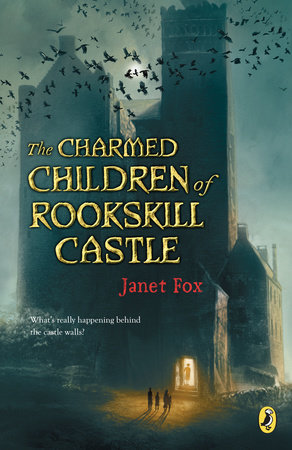What Books About Magic Do for Children — That Other Stories Can’t
by Janet Fox
When I was young, my favorite books were about magic. Fairy tales, myths, fantasies (especially The Chronicles of Narnia), ghost stories, Arthurian tales — all these stories were my spiritual food. I loved mysteries and other books too, but I still recall the precious hours huddled with a book full of fantastical beasts and wandering wizards. Now I write these books and love every minute of it, and children today are as eager for magical stories as I was.
My experience, as well as that of today’s children, begs the question: What do books about magic give children that other books cannot?
Children have no trouble stepping out of reality into imaginary worlds. To a child, a very large person could be a giant. Steam hissing from a sewer might be emanating from a dragon. Fairies must inhabit flowers, and cruel people surely are monsters. The imagination is one of nature’s gifts, allowing children to redefine their world in accessible ways. Imaginative play stimulates brain activity and expands intellectual growth. Imaginative play that incorporates magic expands all possibilities.
The mind of the inventor grows from the mind of the child who believes in magic. Did Gene Roddenberry (the creator of Star Trek) invent the cell phone? No, but he imagined its possibility decades before its invention. Leonardo da Vinci imagined helicopter-powered flight centuries before it was possible. And those who did invent cell phones and aircraft had to believe in the almost-magical transmission of our voices through pocket-size devices, or that man could fly beyond the confines of earth’s atmosphere. As Arthur C. Clarke said: “Any sufficiently advanced technology is indistinguishable from magic.”
Even contemporary culture is steeped in magic. If in Ireland you inadvertently build your house over a fairy path, you’d do best to shave it off. Every time you knock on wood, bless someone who sneezes, or avoid walking under a ladder, you are invoking magical superstitions. My Irish mother believed she saw spirits. My Hispanic friend consulted a bruja. Magic is universal. It is present in a striking sunrise, and is certainly present in a chance meeting that leads to love.
Which brings me to books that incorporate magic — and I’m not only talking about books for young children. Gabriel Garcia Marquez created a rich adult literary canon that assumes the existence of magic in the everyday; vampires in teen lit have extraordinary magical powers; zombie-like magical creatures inhabit a land of snow in novels about power; and magical time-travel transports 20th-century housewives to 18th-century Scotland. These novels transform and inform adults and young adults by reflecting, in a wavy mirror, current politics and social behaviors.
Novels for younger readers that incorporate magic fill bookstore shelves, and I believe that’s excellent for the developing mind and heart. There is simple magic in the act of reading itself — the stimulation of parts of the brain that only come awake while it is working to translate symbols on a page into meaningful ideas. A child who faces difficult circumstances in the real world finds refuge in the fictive magical world.
These novels’ suggestion that there is power in magic translates into a message that power to transform the real world is within the reader — not through spells or enchantments, but through hope and a belief in the unexplained. Books about magic open doors into dreams of a world without limitations, and those dreams can inspire action to change the world as it is.
Give a child a book that incorporates magic and you will give her not only the world, but the universe, infinite with possibilities.

